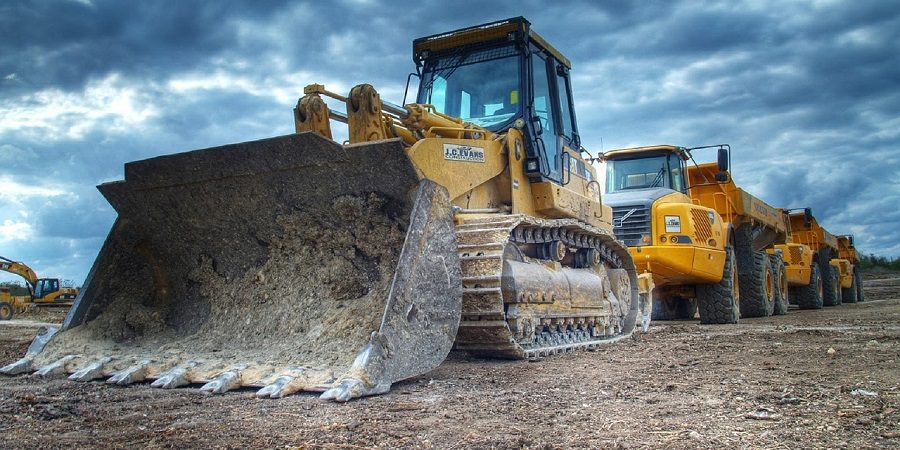Over the past couple of years, the rental market for oilfield equipment has grown considerably. In fact, the business of oil drilling is booming worldwide. This is especially true in the U.S as we are one of the largest oil-consuming countries who want to decrease our dependence on the Middle East.
However, equipment like pumps, trucks, mixers, and other assets can cost hundreds of thousands of dollars. That’s why many companies in the oilfield industry often weigh their options when it comes to renting versus purchasing the equipment they need. That’s why Oilfield Factoring would like to provide you with the following equipment guidelines as you work to operate and expand your business.
Key Factors When Choosing Oilfield Equipment
No matter your industry, when you’re in the market for new equipment, you’ll have to decide whether you can afford to lease or buy. However, the choice isn’t always an easy one to make – especially when it comes to oilfield equipment. In fact, there are quite a few factors to take into consideration from investment capital to long-term projections before you can make an informed decision.
Cost Considerations for Oil and Gas Equipment
Purchasing the equipment you need is often more cost-effective in the long run if you plan on using it for several years. However, oilfield equipment can be very expensive and many businesses just don’t have the funds they need to buy. You can either secure financing to purchase the equipment or rent. Nonetheless, you will end up paying interest either way which can quickly add up. That’s why it’s best to consult with a financial advisor to help you decide which option is more cost-effective for your budget.
Oilfield Equipment Maintenance
Next, it’s important to consider maintenance costs. If you purchase equipment, routine maintenance and repairs are crucial when it comes to protecting and extending the life of your investment. If you have an in-house repair team, maintenance costs won’t be as much of a problem as it would be for other companies who have to outsource these tasks. Owning necessary equipment requires you to pay for all maintenance tasks yourself. With rental equipment, on the other hand, it’s the owner’s responsibility to ensure the equipment is in working order.
Impact on Drilling Operations and Efficiency
Last but not least, you will need to consider how renting or purchasing equipment will impact your business operations. Oilfield equipment can be complex, often involving many moving parts. You will need to make sure you have access to all the equipment you need when different situations arise. When purchasing equipment, it’s up to you to take care of all the details. When renting, however, it’s the job of a service provider to make sure you have everything you need.
Keep in mind, however, that it’s important to take into consideration the response time of a rental company and whether or not replacements are available if equipment breaks down. Last-minute surprises are never good when you are in the middle of a job with a time frame.
Renting vs. Buying Oilfield Equipment: Which is Right for You?
Oilfield equipment is often one of the largest investments a service company will make. That’s why the decision to rent or buy should never be taken lightly. There are many advantages and disadvantages to both renting and purchasing. Depending on the current state of your business and financials, one option may be more beneficial than the other.
Advantages of Buying Oilfield Equipment
- The number one advantage of purchasing oilfield equipment is that you will own it. This, in turn, makes it an asset to your business.
- Purchasing oilfield equipment ensures you will have what you need when you need it.
- If you plan on using certain oilfield equipment on a regular basis and for an extended amount of time, purchasing is a cheaper, more affordable option in the long run.
- If you ever decide to sell the equipment you purchased, you can get some return on the investment you made.
- Depending on current tax laws there may be some tax advantages to purchasing your own equipment.
Disadvantages of Buying Oilfield Equipment
- Purchasing equipment takes a very large financial investment – especially if you want the latest models available.
- Purchasing equipment means you will be responsible for all maintenance and repairs.
Benefits of Renting Oilfield Equipment
- A rental investment can cost significantly less compared to purchasing equipment.
- Renting oilfield equipment often provides you with the latest and most updated models available at a reasonable price. This makes it more dependable for completing jobs quickly and efficiently.
- Rental providers are responsible for general maintenance and repairs, which will save you money on unplanned expenses.
- Some rental providers will deliver the equipment you need to the work site where you need it.
Limitations of Renting Oilfield Equipment
- After extended periods of time paying to rent oilfield equipment, you will have no equity in it.
- There may be certain times when a rental provider may not have the equipment you need when you need it. This can cause problems when you need to complete a job within a certain time frame.
Oilfield Factoring Services
Things change quickly out in the field. Whether you decide to rent or purchase the oilfield equipment you need, it’s important to review your business financials to see what makes the most sense for your company.
If you need equipment financing, reach out to one of our representatives. Oilfield Factoring understands the unique challenges of the oil and gas industry and is dedicated to connecting businesses with the resources they need. This includes the funds to rent or purchase the equipment you need to maintain and grow your business. Contact us today at 1.866.834.7338 to find a program that will fit your specific needs.





